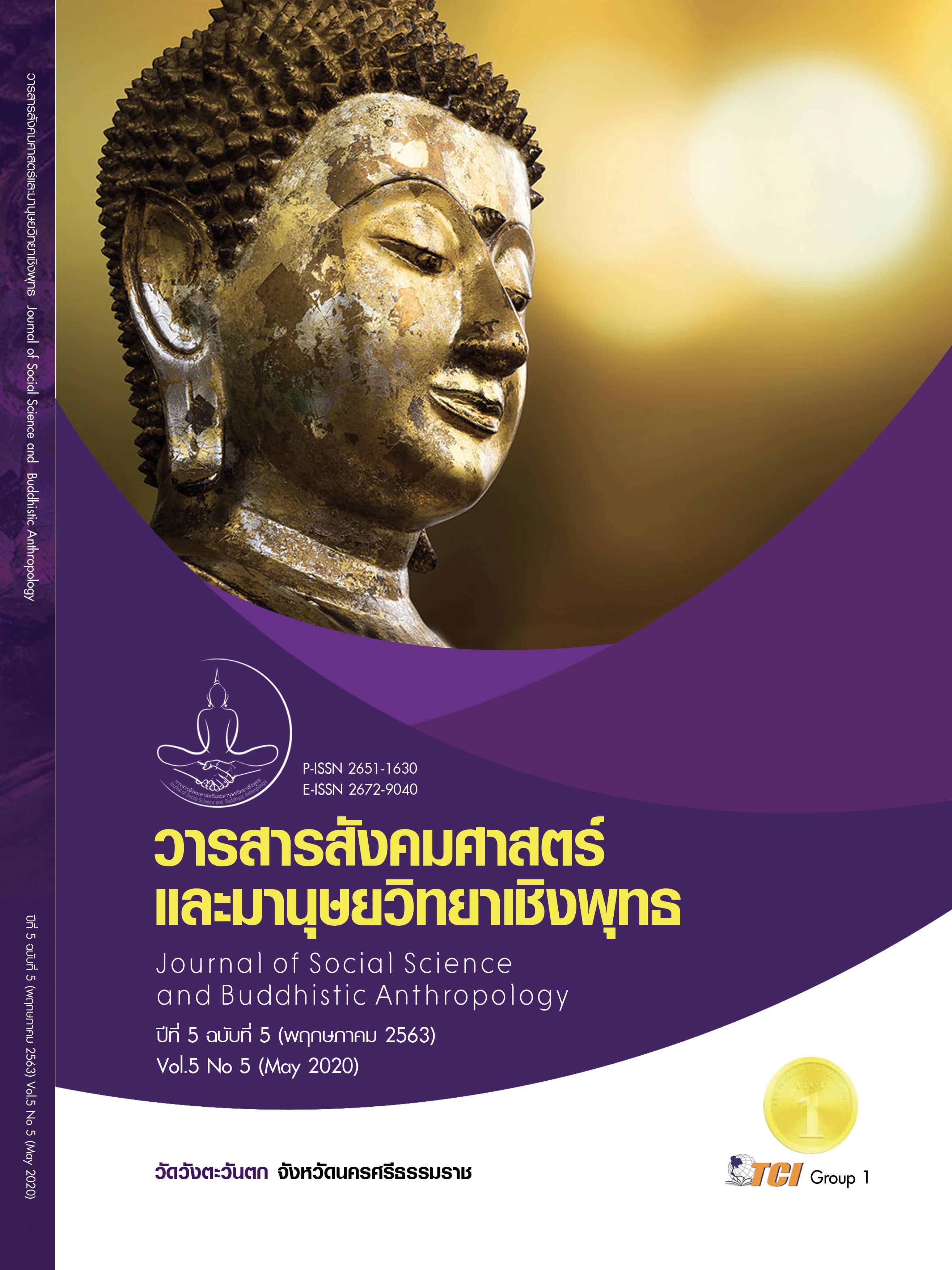DHARMA PRINCIPLES AND POLITICIAN PERSONALITIES EFFECTING THE LOCAL POLITICAL PERFORMANCE IN THE UPPER NORTHEASTERN REGION
Keywords:
Principle, Personalities, Political Expression, Local PoliticianAbstract
The objectives of this article were to: 1)Study the development of the components of the Dharma principles and the personality of politicians that affect the political results Case study of local politicians in the upper northeast province 1 2)Study the relationship between the development of the components, principles, and politician personality that affects the political results. Case study of local politicians in the upper northeast province 1 3) Analyze guidelines for the development of the components, principles, and politician personality that affect the political outcome Case study of local politicians in the upper northeast province 1 using questionnaires as a tool for data collection by sampling 400 sets of population The survey results showed that the seven qualities of a good man (Sappurisadharma) and their components, namely knowing how to be temperate, knowing how to choose and keep time, knowing the society, knowing the individual, and knowing the cause were very high. As well as the components of the politician personalities comprising the preferential characters, the unusual anxiety, the righteousness, and the political skills, including the political performance and its components namely the legitimateness of representatives, the giving of opportunities and the resistance to public complaints were very high regards. From the analysis, it revealed the three variables, namely, the Dhamma principles, the politician personality and the political performance indicated the positive and the same direction with statistical significance .01 level. Consequently, the relationship between the Dhamma principle, the politician personality, and politician performance were consistent with statistical significance .01. Therefore, the forecast coefficient on variables according to political results was statistically significant .05 based on the influence variables, namely the preferential characters, the unusual anxiety, the political skills, the politician personalities, and the part of Dharma principles; knowing how to choose and keep time, and knowing the society, which were explainably 64 percent of covariation of the regression model.
References
จตุพล ดวงวิจิตร และประยูร สุยะใจ. (2559). การบูรณาการหลักการบริหารเชิงพุทธในการส่งเสริมการขับเคลื่อนองค์กรชุมชนในลุ่มน้ำแม่กลองตอนล่าง . วารสารการจัดการธุรกิจ มหาวิทยาลัยบูรพา, 5(1), 63 – 83.
ธเนศวร์ เจริญเมือง. (2550). 100 ปี การปกครองท้องถิ่นไทย พ.ศ. 2440-2540. (พิมพ์ครั้งที่ 6). กรุงเทพมหานคร: โครงการจัดพิมพ์คบไฟ.
บุญชม ศรีสะอาด. (2554). การวิจัยเบื้องต้น. (พิมพ์ครั้งที่ 9). กรุงเทพมหานคร: สุรีวิทยาสาสน์.
พิมพ์พิมล นวชัย. (2560). รูปแบบการปกครองในระบอบประชาธิปไตย. เรียกใช้เมื่อ 20 เมษายน 2560 จาก http://wanwila.exteen.com/20130523/entry-1
โรจนินทร์ ศรีปองพันธ์ และคณะ. (2561). บทบาทของนักการเมืองท้องถิ่นในการบริหารจัดการในเขตเทศบาลเมืองสุรินทร์ จังหวัดสุรินทร์ . วารสาร ธุรกิจปริทัศน์, 10(2), 39 - 54.
ลิขิต ธีระเวคิน. (2553). การเมืองการปกครองของไทย. กรุงเทพมหานคร: มหาวิทยาลัยธรรมศาสตร์.
สมบัติ ธำรงธัญวงศ์. (2554). การเมือง: แนวคิดและการพัฒนา. กรุงเทพมหานคร: สำนักพิมพ์เสมาธรรม.
สัญญา เคณาภูมิ. (2558). วิถีพอเพียงวิถีประชาธิปไตย : กรณีศึกษาชุมชนตำบลโคกพระ ตำบลมะค่าและตำบลกุดใส้จ่อ อำเภอกันทรวิชัย จังหวัดมหาสารคาม. วารสาร มจร สังคมศาสตร์ปริทรรศน์, 4 (2) (ฉบับพิเศษ) : พฤษภาคม – สิงหาคม 2558 , 56 – 72.
สำนักบริหารยุทธศาสตร์กลุ่มจังหวัด ภาคตะวันออกเฉียงเหนือตอนบน 1. (2555). สภาพทั่วไปของกลุ่มจังหวัด. เรียกใช้เมื่อ 27 พฤศจิกายน 2561 จาก http://www. osmnortheast-n1.moi.go.th/ud/index.php?option=com_ content&view =article&id=54&Itemid=87
อริสา เหล่าวิชยา. (2556). ภาพลักษณ์นักการเมือง. วารสารนักบริหาร, 33(2), 57-62.
เอก ตั้งทรัพย์วัฒนา. (2551). คำและความคิดในรัฐศาสตร์ร่วมสมัย เล่ม 2. กรุงเทพมหานคร: วี. พริ้นท์.
Yamane, T. (1973). Statistics: An Introductory Analysis, Third edition. New York: Harper and Row Publication.









